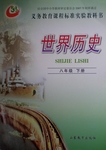题目内容
_____ in the woods,the two girls were frightened and kept crying.
A.Having lostB.Lost
C.To be lostD.Being lost
练习册系列答案
 探究与巩固河南科学技术出版社系列答案
探究与巩固河南科学技术出版社系列答案
相关题目
题目内容
_____ in the woods,the two girls were frightened and kept crying.
A.Having lostB.Lost
C.To be lostD.Being lost
 探究与巩固河南科学技术出版社系列答案
探究与巩固河南科学技术出版社系列答案